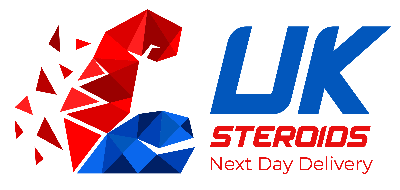Caloric Requirements for Muscle Gain
Gaining increased muscle mass requires a diet high in calories and an exercise programme centred on hypertrophy. The flashy and alluring parts of growing bigger are gaining weight and crushing workouts. The self-control needed to stick to a diet meant to gain muscle turns off many. Still, it’s the most important phase in developing muscle.
In fact, according to some fitness experts, eating a healthy diet account for 70% of the appearance you see in the mirror. Even if you adhere to your exercise regimen exactly, you could still be wondering, “How many calories should I eat to grow muscle?” If you’re not sure what to eat to promote muscle building, don’t worry.
What Are the Main Elements That Build Muscle?
Before providing a solution to the query, “How many calories do I need to gain muscle?” we would want to discuss the secret to the most effective muscle growth. Muscle growth is supported by three key pillars: diet, recovery, and training.
Training: Your workout routine is essentially this. The optimal muscle-building workout programme will take into account macro, meso, and microscales and span the full course of a year.
- Micro Calendar: Displays your weekly exercise schedule
- Meso Calendar: Regular exercise
- macro calendar: a full year of training
Remembering that these calendars are dynamic is essential. They will evolve, so be flexible and provide them with updates along the way.
Recovery: You need to devote the same amount of time to your relaxation as you do to your exercise. Eat the allotted number of calories each day, get eight hours of sleep every night, and take a post-exercise protein drink after every workout.
Feeding: If you don’t provide your body with the proper nutrition and fuel for your muscles, you run the danger of losing muscle mass, becoming injured, or experiencing both. This is true even if you exercise nonstop throughout the day. Let’s talk more about how to modify your diet to promote the growth of muscle.
What Should I Eat in Calories to Gain Muscle?
Gaining muscle is just not feasible without a healthy diet. If all you do to grow muscle is raise your weekly calorie intake, you will probably gain weight mostly in the form of increased body fat. Through the use of these four easy steps:
Step 1: Determine your basal metabolic rate.
First, you need to know what your basal metabolic rate (BMR) is. Your body’s metabolic rate (BMR) is the total quantity of calories needed to fuel ONLY the most basic functions.
- Breathing
- Circulation
- Processing of nutrients
- Cell Generation
Step 2: In step two, figure out how much energy you use each day overall.
This means that you need to calculate your total daily energy expenditure (TDEE). Your TDEE is the total daily energy expenditure for the day. How many calories would you get from this quantity of food? You would still weigh the same quantity.
By calculating your BMR by the total number of calories you burn when exercising, you may calculate it. Use the online calorie counter to find your TDEE.
Step 3: Increase your TDEE by 250–500 calories.
You must eat the amount of calories indicated by your Total Daily Energy Expenditure (TDEE) to maintain your present weight. But to fuel your muscle-building efforts and grow lean muscle mass, you should eat more calories.
Aim to consume 250–500 more calories per day than your TDEE to gain lean muscle mass. This is the “sweet spot” of calories that you should consume to gain muscle mass. We suggest starting with 250 extra calories and gradually increasing them based on how hard your workouts are. Don’t consume more than 500 extra calories.
Step 4: In step four, assess your progress and make any modifications.
It’s important to understand that no calculator is perfect. Yes, a calculator can help you determine your TDEE rather accurately. Using your sweet spot number, however, may reveal that you’re either gaining too little or too much weight. As a result, you are not using all of your muscle growth. As a general guideline, you should aim to gain no more than one pound every week to prevent this from occurring. So why aren’t you reaching that threshold? Change your diet to ensure that you do.
What Meals Are Recommended?
To gain the most amount of lean muscle mass, you can have the following meals and still achieve your calorie requirements:
Proteins:
Eggs
chicken thigh
Lamb chops
Greek yoghurt with tuna
Cheese cottage
Yoghurt protein
Fats:
Large fish (e.g., salmon, tuna, mackerel)
Nuts (e.g., almonds) (e.g., almonds)
Seeds (e.g., pumpkin seeds) (e.g., pumpkin seeds)
Oil (e.g., coconut oil) (e.g., coconut oil)
Supplements (e.g., MCT oil) (e.g., MCT oil)
Fibrous carbohydrates:
Low-calorie fruits (e.g., berries)
Vegetables, legumes, and carbohydrates (starch) include beans.
Pasta White rice Oats Bread
When to Eat for Optimal Results
The differences among the three types of carbs bring up the question of when to eat. It also depends on when you ingest these macronutrients. Why? because your body absorbs particular nutrients best at specific times of the day. To understand, you have to know how exercise affects your body. You see, when you exercise, a big percentage of your muscles’ glycogen stores are burned. The proteins in your muscles are also partially broken down.
What comes next? Your body is forced to restock on glycogen itself. and put all the broken proteins back together. It then starts to use those nutrients significantly more efficiently than it would have otherwise to create muscle. Studies show that this stage only lasts for the first thirty to forty-five minutes following your exercise. This time frame is known as “the anabolic window of opportunity”.












Leave a Reply